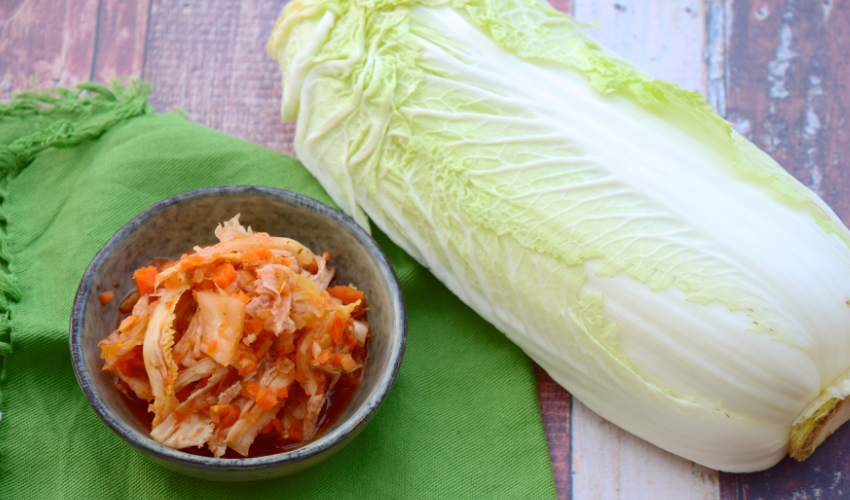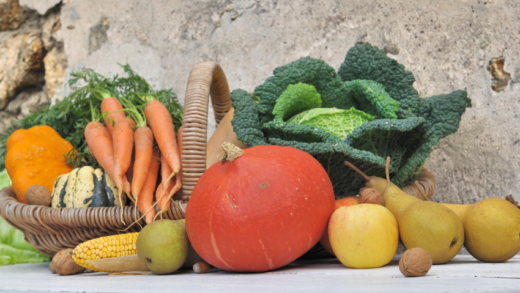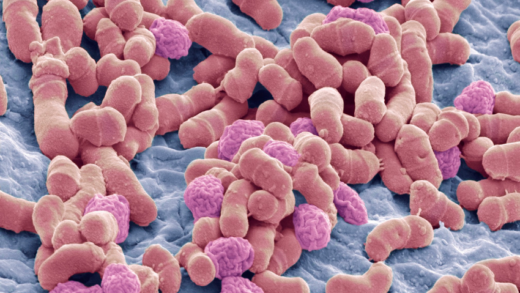Kimchi is a traditional Korean dish that has been gaining popularity worldwide for its delicious taste and numerous health benefits. Made with fermented vegetables, such as cabbage and radish, and seasoned with a blend of spices and flavors, kimchi is packed with nutrients that can help improve your overall health and wellbeing. In this article, we will explore the health benefits of kimchi and why you should consider adding this superfood to your diet.
What is Kimchi?
Kimchi is a traditional Korean dish made by fermenting vegetables, such as napa cabbage, radish, and scallions, with a variety of spices, including garlic, ginger, and chili pepper. The fermentation process not only gives kimchi its distinctive sour taste but also creates beneficial bacteria known as probiotics.
The Nutritional Value of Kimchi
Kimchi is low in calories but high in nutrients, making it an ideal food for weight management. It is rich in fiber, vitamins, and minerals, including vitamin C, vitamin K, vitamin B6, folate, and potassium. Additionally, kimchi is a great source of antioxidants, which can help protect your body against oxidative stress and inflammation.

Health Benefits of Kimchi
- Boosts Digestive Health: Kimchi is a great source of probiotics, which can help improve your digestive health by increasing the number of beneficial bacteria in your gut. This can help relieve symptoms of digestive disorders, such as diarrhea and irritable bowel syndrome.
- Supports Immune Function: The probiotics in kimchi can also help support your immune system by enhancing the production of antibodies and other immune cells that protect against infections and diseases.
- Reduces Inflammation: Kimchi is rich in antioxidants and anti-inflammatory compounds that can help reduce inflammation in your body. This can help alleviate symptoms of inflammatory conditions, such as arthritis and asthma.
- May Help Prevent Cancer: Some studies suggest that kimchi may have anti-cancer properties due to its high content of antioxidants and sulfur compounds. These compounds can help prevent the growth and spread of cancer cells.
- May Improve Heart Health: The fiber and antioxidants in kimchi may help lower your risk of heart disease by reducing cholesterol levels and blood pressure.
How to Incorporate Kimchi into Your Diet
Kimchi can be enjoyed in many ways, including as a side dish, a condiment, or as an ingredient in your favorite recipes. Here are some ideas on how to incorporate kimchi into your diet:
- Add kimchi to your sandwich or wrap for a tangy and spicy twist.
- Use kimchi as a topping for your eggs, pizza, or baked potatoes.
- Mix kimchi with rice, noodles, or stir-fry for an extra burst of flavor.
- Enjoy kimchi as a side dish with grilled meat, fish, or tofu.

Risks and Precautions of Eating Kimchi
While kimchi is generally safe to eat, it may not be suitable for everyone. Here are some risks and precautions to keep in mind:
- High Sodium Content: Kimchi is high in sodium, which can be harmful to people with high blood pressure or kidney disease.
- Allergies: People with allergies to certain vegetables or spices used in kimchi should avoid eating it.
- Fermentation: Improperly fermented kimchi can cause food poisoning or other digestive issues. It is important to purchase kimchi from a reputable source and store it properly.
- Staining: Kimchi can stain clothes and surfaces due to its vibrant color and strong smell.
FAQs:
Is Kimchi suitable for vegetarians and vegans?
Yes, kimchi can be made with vegetarian or vegan ingredients and is suitable for those following a plant-based diet.
Can I make my own kimchi at home?
Yes, making kimchi at home is possible, but it requires some patience and knowledge of the fermentation process. There are many recipes and tutorials available online to help you get started.
Can I eat kimchi if I have a sensitive stomach?
While kimchi can be beneficial for digestive health, it may not be suitable for everyone, especially those with a sensitive stomach or digestive issues. It is best to start with small amounts and observe how your body reacts.
How long does kimchi last in the refrigerator?
Kimchi can last for several months in the refrigerator if stored properly in an airtight container. However, the flavor and texture may change over time.
Can I eat kimchi if I am pregnant or breastfeeding?
While kimchi is generally safe to eat during pregnancy and breastfeeding, it is important to consult with your healthcare provider to determine what foods are safe for you and your baby.
Conclusion
Kimchi is a traditional Korean dish that is not only delicious but also packed with nutrients and health benefits. From improving digestive health to supporting immune function and reducing inflammation, kimchi is a versatile superfood that can benefit everyone. By incorporating kimchi into your diet, you can enjoy its many health benefits and add some spice and flavor to your meals. Remember to purchase kimchi from a reputable source, store it properly, and consult with your healthcare provider if you have any concerns or questions.






















